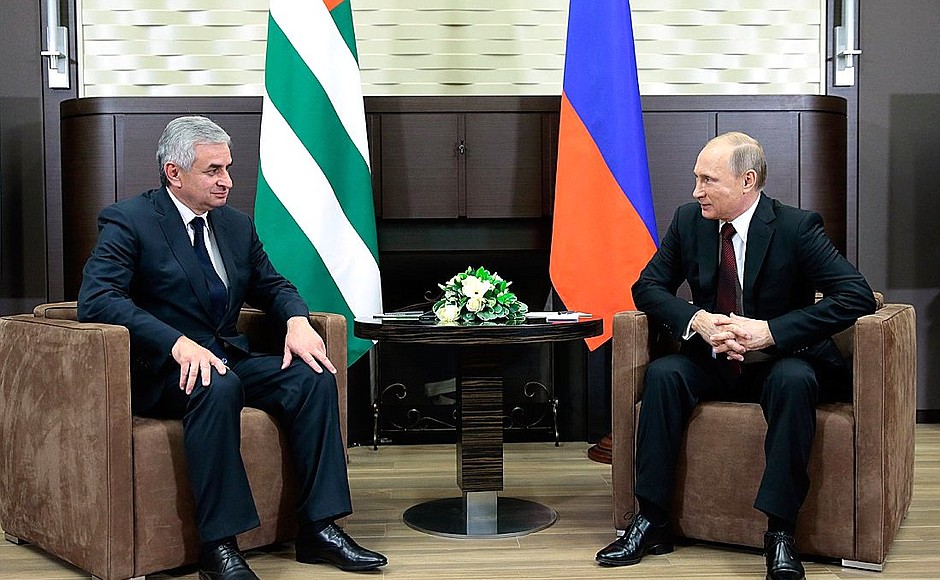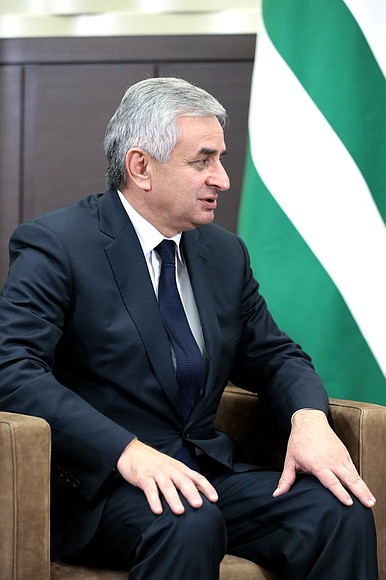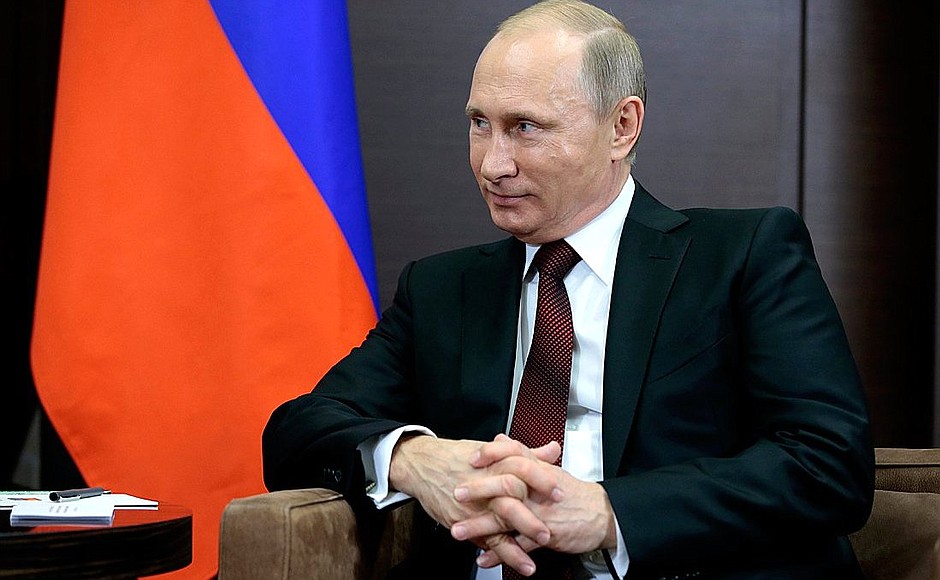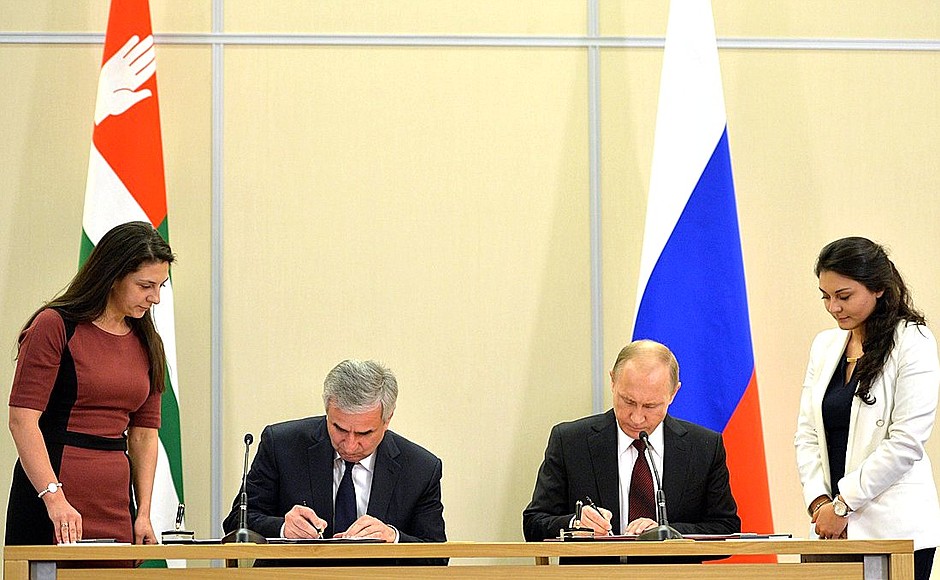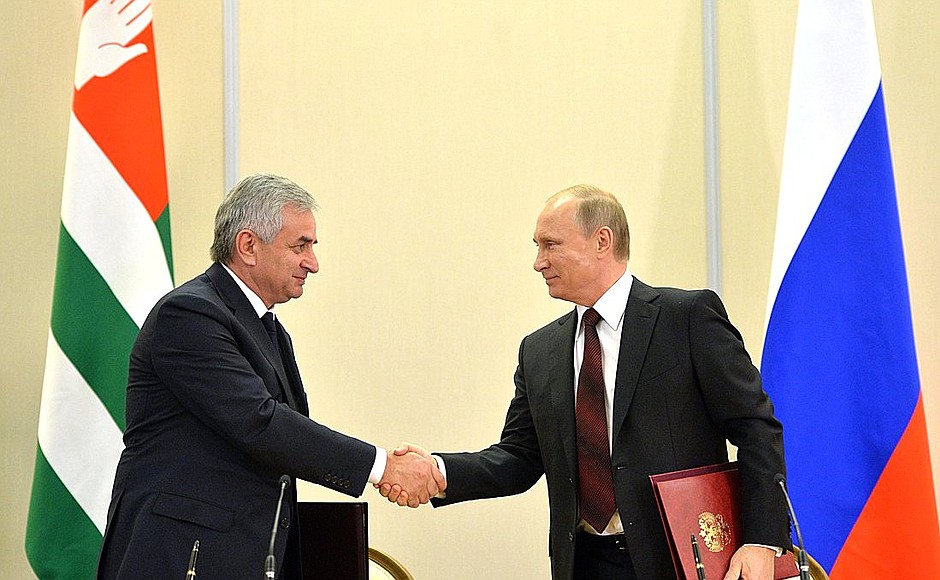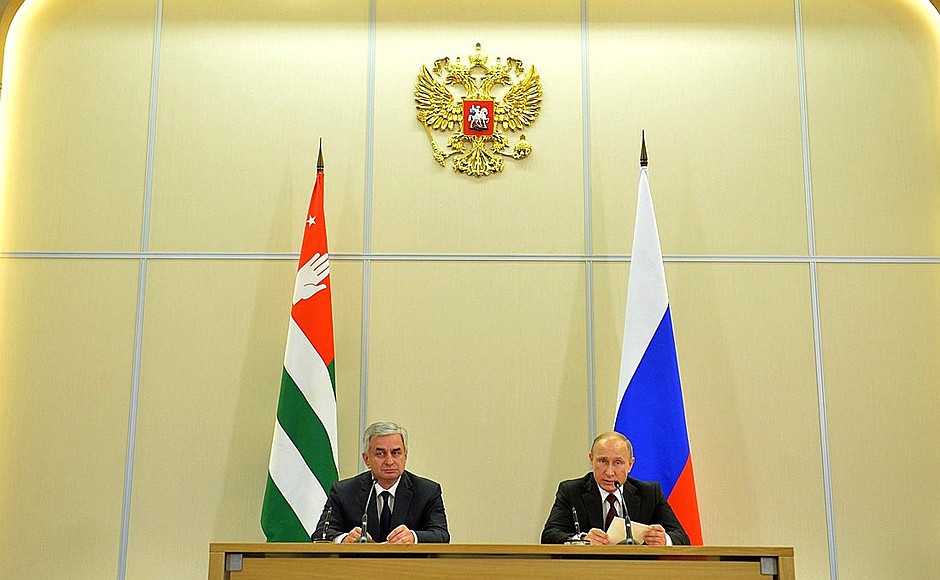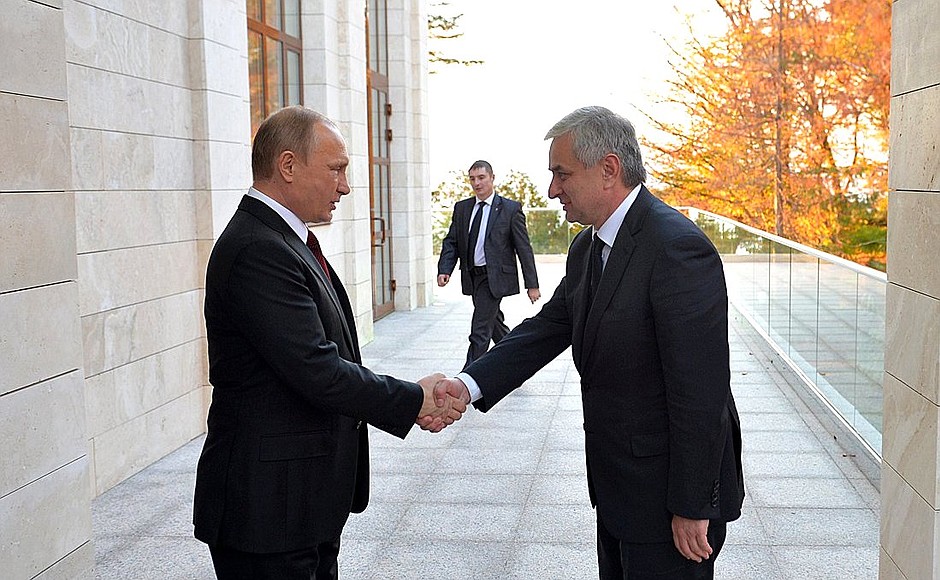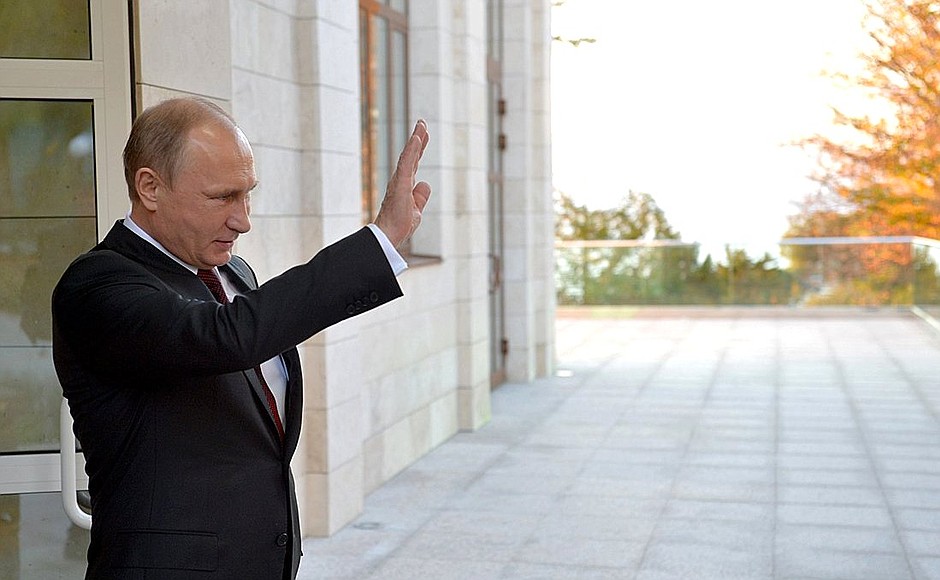See also
Following their talks, Mr Putin and Mr Khadzhimba signed the Agreement between the Russian Federation and the Republic of Abkhazia on Alliance and Strategic Partnership and made press statements.
Under the Agreement’s terms, Russia and Abkhazia will focus on developing their alliance and strategic partnership through coordinating foreign policy, developing a common defence and security space, establishing a common social and economic space, assisting Abkhazia in its socioeconomic development, and preserving a common cultural, spiritual and humanitarian space.
In particular, under the Agreement, Russia will make a comprehensive effort to help Abkhazia strengthen its international ties.
The Agreement also sets out provisions on mutual assistance if either party is attacked. A combined Russian-Abkhazian force will be established and Russia will finance modernisation of Abkhazia’s army.
Under the Agreement, the two countries will work together to guard the Abkhazia-Georgia border. This includes help in setting up the necessary equipment and installations. The Agreement provides for complete freedom of movement on the Russia-Abkhazia state border, taking into account restrictions imposed for security reasons.
In the area of customs law, Abkhazia will harmonise its laws with those of Russia and the Eurasian Economic Union.
Under the Agreement, Russia will simplify procedures for Abkhazian citizens to obtain Russian citizenship and will help Abkhazia to raise wages for public sector workers in healthcare, education, science, culture, sport and provision of social services to the public, bringing wages up to the level of public sector workers in Russia’s Southern Federal District. The same will be done for pensions paid to residents of Abkhazia holding Russian citizenship.
The Agreement contains specific provisions on Russian assistance in developing Abkhazia’s healthcare and education systems and carrying out a programme to develop the Abkhazian language.
The Agreement is being concluded for a ten-year period with the possibility of extending it for subsequent periods of five years each.
